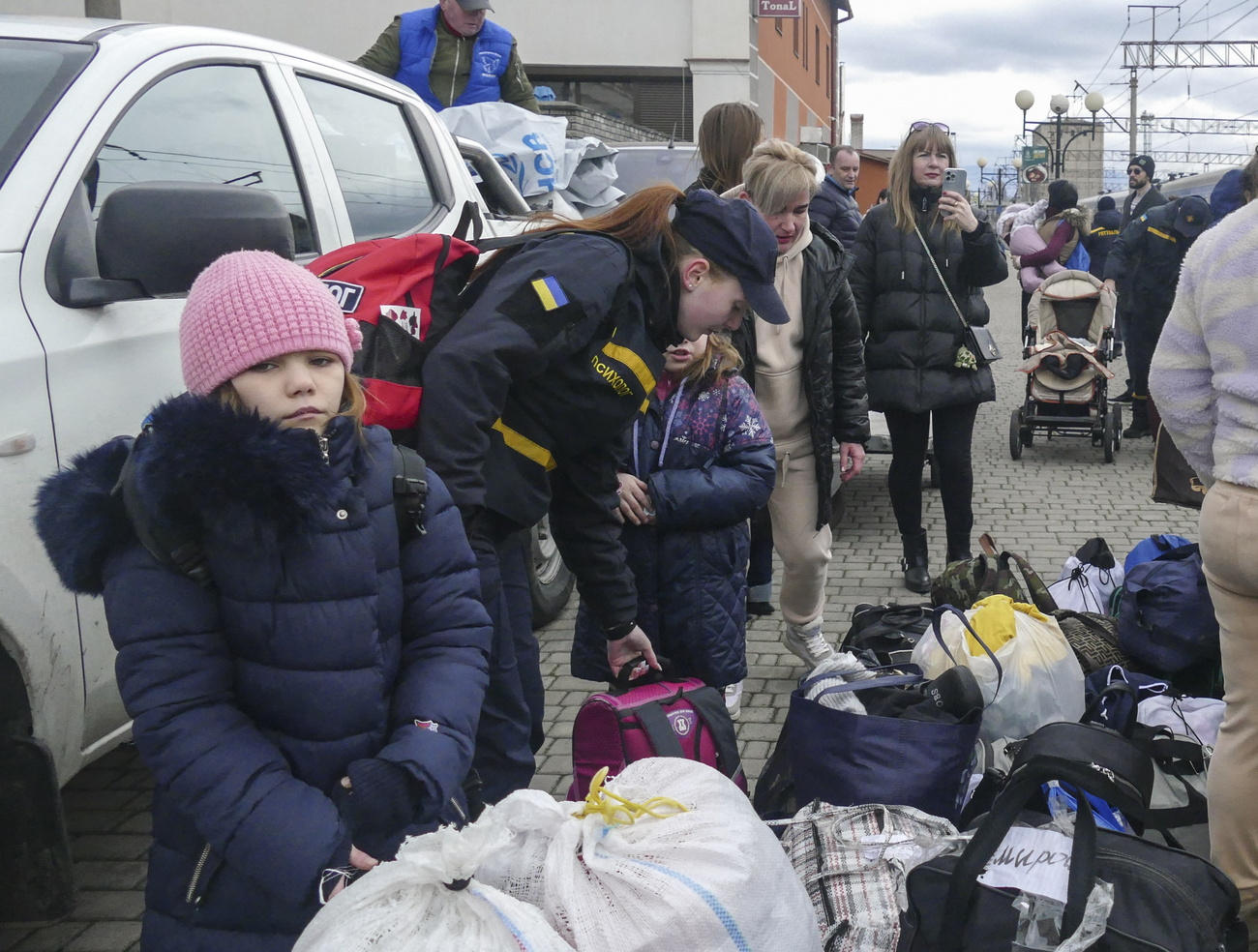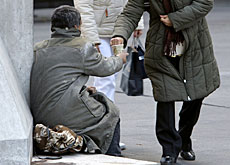
Geneva authorities turn the screw on beggars

Beggars, especially those who have recently arrived from Romania, will find it harder to get handouts in Geneva with the introduction of new police measures.
The western Swiss city has seen the number of vagrants asking for money take off in recent months with the suspension of cantonal rules banning begging – a situation that could change if a new law is approved.
“The idea is to make Geneva less attractive for beggars, most of them from Romania’s Roma community,” said city councillor Pierre Maudet on Tuesday.
Beggars will no longer be allowed to stay in the same place all day – at present often in front of stores or the city’s famous banks – and more identity controls are to be carried out.
The city and canton plan to introduce restrictions in two phases. Over the next few weeks, police and local security staff will carry out checks to try to estimate how many beggars are on Geneva’s streets.
The places where vagrants have been sleeping will also be evacuated, especially under bridges where heath risks cause concern with the presence of rubbish and rats.
“Humanely speaking, we can’t let people sleep outside in winter,” said Maudet.
Redirected
People moved on by the authorities will be redirected towards emergency shelters where they will be allowed to stay for up to ten days. After that, they will have to find somewhere else to stay or leave Switzerland.
A special group of police officers and security staff will also be formed next month to forge closer contacts with the Roma community.
The city and canton had to consider new measures after it was revealed that police were still imposing on-the-spot fines on beggars earlier this year despite a suspension of the by-laws.
When the authorities wanted to reimburse those who had been fined, they were unable to find nearly 800 people because they had no known address.
As a result of the fines being dropped, the canton and city believe that more vagrants were attracted to the city. Romanian Romas in particular can enter Switzerland easily because of their European Union passports and stay for 90 days without a visa.
Problem
Christian Luscher, a centre-right Liberal member of the cantonal parliament who is backing a proposal to outlaw begging, told swissinfo that the measures show the local authorities have realised there is a problem.
“But nobody can tell us if begging is still allowed in Geneva or not,” he added.
Many Geneva residents had complained about the presence of beggars on street corners. Some of the fears they expressed included the presence of some kind of criminal organisation and child exploitation.
They also wondered if the people begging thought the practice more lucrative than a normal job. Members of the Roma community in Switzerland say that real work is the preferred option, not begging.
The authorities say that the problem is not as bad as some people believe: there are only 150 to 200 Roma vagrants in Geneva according to their estimates, and they stay only between two and three months.
There has also been no indication of gangs being involved, despite media reports to the contrary, or that beggars have committed serious crimes.
Geneva’s police minister, Laurent Moutinot, said that the measures might not be spectacular, but added he was not looking for oversimplified solutions.
He warned that total repression had only led to more delinquency in other countries, while wanting to help the Roma community had led to the creation of ghettos.
Luscher says though that stronger measures are needed and he might get his way.
“If all goes well, my proposal will be approved by the end of the month and the government will have to implement this legislation,” he told swissinfo.
swissinfo with agencies
There is no national legislation on begging in Switzerland. It’s left to the cantons and communes to deal with the problem.
Practices vary from place to place.
In Lausanne, only someone who forces a minor to beg can be fined. In the capital Bern, the police deal only with aggressive beggars.
Basel keeps a close eye on beggars and police either warn or remove those people they consider undesirable.
In Zurich, begging has been illegal since the beginning of the year and fines are imposed.
The Roma constitute one of the major ethnic groups in Romania. With 2.5% of the total population, they are the second-largest ethnic minority after Hungarians.
They are also Romania’s most socially- and economically disadvantaged minority, with high crime and illiteracy levels.
Italian authorities cite criminal activities by Romanian Roma – including a recent murder – to justify the expulsion of Roma from Italy, although Romania is now part of the EU.

In compliance with the JTI standards
More: SWI swissinfo.ch certified by the Journalism Trust Initiative



























You can find an overview of ongoing debates with our journalists here . Please join us!
If you want to start a conversation about a topic raised in this article or want to report factual errors, email us at english@swissinfo.ch.